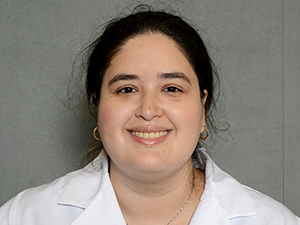
by Alejandra Osorio, M.D. (PGY-3)
As a newly minted PGY2, I started the academic year on an ambulatory rotation. Chart reviewing for my clinic patients later in the week, I stumbled across a patient handed off from a recently graduated PGY3. She had multiple no-shows to clinic without any explanation as to why. Well... I was going to find out why.
After a few rings, the patient picked up the phone. She explained that she lived in rural Alabama but was terrified of driving and couldn’t find a consistent ride, so getting to her appointments was difficult. She asked me if there were any resources I knew of that could help her get to her appointments.
Despite having lived in Birmingham for a year at that point, despite over 21 years of education, and despite an MD, I was at a complete loss. I had no clue how to help her. I had figured out why she was not showing up to clinic and felt helpless to solve the problem. I never wanted to feel powerless like that again.
When our health disparities chief resident sought volunteers to draft a community resources document, I remembered that day on the phone. I remembered that feeling of helplessness. I remembered reflecting on the need for resident physicians to have at least a basic understanding of the community resources in their area. So, I happily volunteered. With a small group of co-residents, I combed multiple resources, often disjointed or with out-of-date information. We compiled a single, updated document with community resources that residents could reference to assist their patients. From dental services to transportation to housing or food services, the document is far-reaching in its scope but also attempts to be comprehensive with basic descriptions of each resource along with addresses and contact information.
So, the next time that I’m in clinic and a patient asks me to help them with transportation, I won’t be caught unawares. I won’t feel helpless again. I’ll know the community resources document is just a click away.
Our Community Resources Document is a work in progress, and we hope you may find it a helpful reference for housing, food insecurity, transportation, substance use, behavioral health, where to get an identification card, resources for immigrant documentation, sexual health and PrEP, dental and primary care.